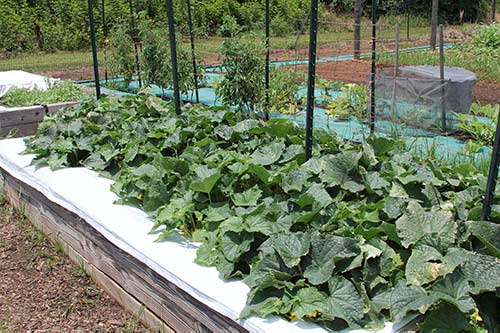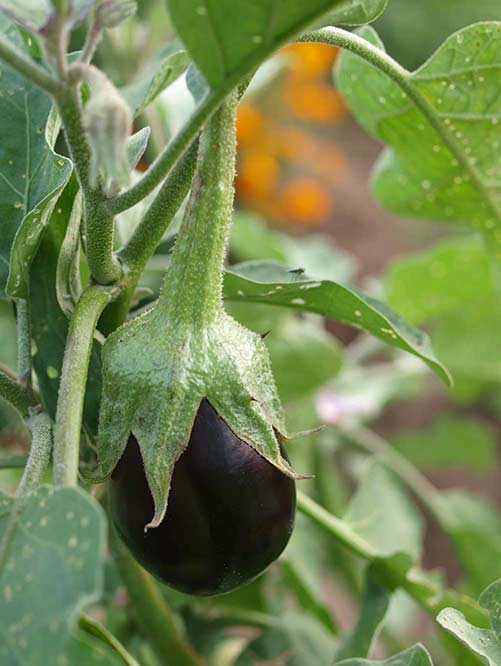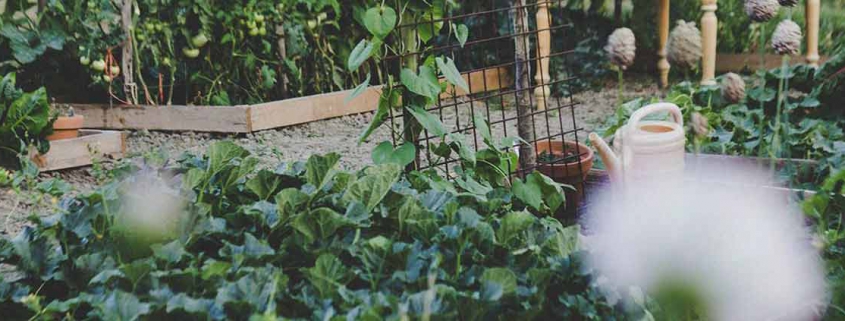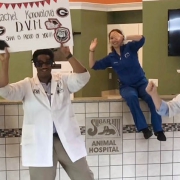UGA horticulture expert offers tips on growing vegetables at home
This was written by Bob Westerfield and originally posted to UGA CAES News on April 20, 2020.
While adults and children spend more time at home as a result of the COVID-19 crisis, planting a garden or container garden is a great activity to plan together. It’s outside, active, educational and edible. With some grocery stores taking longer than usual to stock some items, vegetable gardening is a great way to keep your refrigerator stocked.
For those who have never considered growing their own vegetables, the task may seem daunting, but it’s actually a very simple process.
Vegetables need soil, sunlight, moisture and fertility. Any location in your landscape that receives at least six hours of sunlight could be a good location for growing your crop. The amount of space you have available will dictate the size of your garden. Even very small gardens can produce a surprising quantity of vegetables and easily feed a family of four or more.

Squash plants grow in the UGA Research and Education Garden.
One simple method of getting started is to grow vegetables in raised beds. Treated lumber, two feet by six feet or larger, can be safely be used to form the sides of the bed. Compost, manure or bagged topsoil are good amendments to use to fill the beds.
Soil temperatures have just arrived at the perfect level for planting vegetables. Summer vegetables can be planted between now and June, so there is plenty of time to plant a garden.
I would suggest purchasing transplants of tomatoes, peppers and eggplants. Theses crops do not establish easily if planted directly into the garden from seed. Other vegetables, such as squash, corn, cucumbers, beans, okra and melons, can be directly seeded into the garden with excellent success.

Take care to plant seeds at the proper depth recommended on the seed packet. Apply a light starter fertilizer, such as 5-10-15, at planting time to give vegetables initial nutrition. More fertilizer should be applied after vegetables have been pollinated and are developing tiny fruits.
Soil testing, available through your local University of Georgia Cooperative Extension office, is the best way to know the true nutritional needs of your garden soil.
Some form of irrigation will be necessary to help vegetables get started and maintain them through the growing season. Drip irrigation or soaker hoses are the best options to conserve moisture and keep plants dry. Overhead irrigation, however, can be used when it is the only option.
Most vegetables require one to two inches of water per week. Raised beds tend to drain much faster and may require additional applications of water. Organic mulch placed around vegetable plants will help conserve moisture and help keep weeds under control.
As the season progresses, keep a careful eye on your developing vegetable plants. Insects, disease and even weeds can take over quickly if not kept in check. Proper identification of the pests is essential in choosing the right control. UGA Extension can help identify pest issues and recommend the best controls.
Don’t let these difficult times keep you down and feeling helpless. Turn your backyard into vegetable heaven and enjoy the delicious fruits of your labor. Supplies can be ordered online if you don’t want to don your mask and practice social distancing at your local garden center.
For additional gardening information, visit extension.uga.edu/publications to view numerous related publications. Search the topics for a specific variety you are interested in growing, such as corn, beans, squash, okra, etc. Other suggested publications include:
Home Gardening (Bulletin 577)
Vegetable Gardening in Georgia (Circular 963)
Vegetable Garden Calendar (Circular 943)
Weed Control Options for the Home Vegetable Gardener (Circular 1144)
Raised Beds vs. In-Ground Gardens (Circular 1027-3)
Growing Vegetables Organically (Bulletin 1011)
Bob Westerfield is a Cooperative Extension horticulturist with the University of Georgia College of Agricultural and Environmental Sciences.


 provided by Sugar Hill Animal Hospital
provided by Sugar Hill Animal Hospital





 Provided by the Georgia Museum of Art
Provided by the Georgia Museum of Art